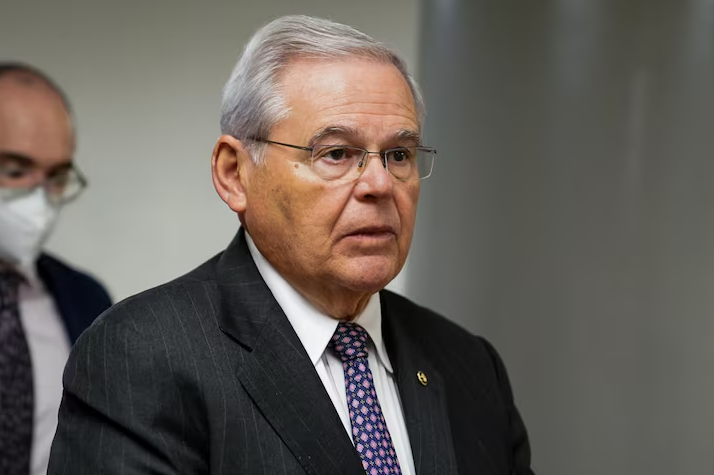While Nigeria and the rest of Africa aim to leverage gas as a key transition fuel despite the push against fossil fuels, misalignment in the industry, extending to the electricity sector, creates numerous problems. Managing Director of FrazEnergy, Osi Okonkwo, in this interview with KINGSLEY JEREMIAH, sheds light on the intricacies of the issues and offers some solutions.
The power sector has a serious liquidity crisis with most gas suppliers not being paid. How does this affect our push towards a gas economy?
What I aim to address here is the broader perspective. Recently, we finalised a plan for a five million cubic feet project that will produce LNG and LPG, mainly for captive power solutions with manufacturers. In the context of our energy landscape, we are actively involved in the larger gas consortiums, where projects can involve up to 300 million cubic feet of gas plants and the necessary pipelines to transport gas from upstream producers to the market, or connect them to existing gas networks where feasible.
Indeed, a comprehensive approach is essential at this stage, spanning all phases of development. Unfortunately, as a country, we postponed tackling the power issue until it became challenging. The reality is that despite efforts to keep electricity affordable, we have never truly paid the actual cost of gas or power. Instead, we pay for it indirectly through the high costs of diesel for domestic and office use, where the price can reach up to N500 per kilowatt hour.This stark contrast exists despite efforts to maintain a subsidised electricity tariff of around N60 per kilowatt hour on meters. Had we adjusted earlier to a middle ground, such as N100 or N120 per kilowatt hour, it could have stabilised the market and corrected this imbalance. It’s not too late to make these adjustments, but our delay has hindered substantial investments in the midstream and downstream sectors.
For entities like ours, achieving a final investment decision (FID) hinges on presenting a compelling narrative. Currently, manufacturers stand out as key players, given their reliance on gas for cheaper power compared to diesel, especially for major petrochemical off-takers. Government initiatives aimed at revitalising the power sector hold promise for integrating and strengthening the entire value chain.
Power generation has not significantly increased and over N16.5 trillion is going into alternative power generation. Do you see the captive power option as leeway?
It is an unfortunate reality, but the challenges we are addressing in our country are deeply rooted in structural issues. These changes take time. Pipelines and gas plants don’t just materialise overnight. First, there needs to be a viable commercial case, and then the groundwork can begin. Typically, from conception to completion, a gas plant can take anywhere from three to four years, if we’re fortunate.
As these structural adjustments unfold, we’re looking at a horizon of five to 10 years where captive power will remain crucial in our country.
One way to enhance captive power is by leveraging our existing gas resources, starting with reducing flaring and utilising that gas to replace imported diesel. This would not only benefit Nigeria but also contribute positively to Africa as a whole.
In terms of energy transition, gas should be seen as a transitional fuel as we move towards renewables. Renewable energy sources such as hydro, thermal, solar, and wind offer constant replenishment, unlike fossil fuels. However, the intermittency of solar and wind power, where energy generation ceases at night or when conditions are calm, underscores the need for a diversified energy portfolio.
Our reserves and crude oil production have been low, considering that we have the bulk of our gas from associated fields. Do you think gas feedstock will become a challenge for investors?
You are correct, and there is a crucial category of gas that we must consider; associated gas. This type of gas is predominantly produced alongside crude oil and is unavoidable in oil production processes. However, a significant part of our gas value chain that remains underdeveloped due to structural issues in gas infrastructure is the non-associated gas reserves. Many prolific wells contain substantial reserves of non-associated gas that have not been drilled or produced because they lack the infrastructure to capture and utilise them effectively.
Addressing these structural challenges in the power value chain would facilitate financial investment decisions for producers to develop these non-associated gas reserves. This, in turn, would enable entities like ours to establish gas processing plants, pipelines, and related infrastructure. Unlocking this segment of our gas reserves presents a substantial opportunity, contingent upon repairing and optimising the gas-to-power value chains. This improvement would not only benefit upstream and midstream players but also enhance overall energy security and sustainability.
The funding side of gas development still appears very weak. Continent-wide, we only secured $37 billion of over $150 billion gas-related projects.
When it comes to funding large-scale projects of this magnitude, which often involve tens of billions of dollars, telling a compelling story that resonates with investors is crucial. One significant challenge we face is navigating the issue of climate change and the rise of Environmental, Social, and Governance (ESG) criteria in funding decisions. Many investment funds now have restrictions on funding projects related to fossil fuels, posing a hurdle for regions like Africa that still heavily rely on these fuels for revenue generation.
Despite these challenges, institutions such as Afreximbank and the Africa Finance Corporation (AFC) have stepped up to bridge this gap and support the continent in developing these critical projects. Their involvement helps to continue building narratives that align with evolving ESG standards while promoting sustainable development.
Another pivotal factor in overcoming these challenges lies in clear and consistent policy frameworks. For instance, in Nigeria, ongoing efforts within the current administration aim to streamline and clarify policies related to power and energy.
The Petroleum Industry Act (PIA) is a significant step in this direction, providing a framework that enhances transparency and predictability across the gas-to-power value chain.
By establishing and enforcing such policies effectively, stakeholders gain clarity on their roles and responsibilities within the energy sector. This clarity not only attracts investment but also fosters a conducive environment for sustainable development initiatives that align with global environmental goals. Thus, policy coherence plays a crucial role in addressing funding challenges and steering Africa’s energy sector towards a more sustainable and resilient future.
Do you think the gas fund created by the Petroleum Industry Act can solve the problem?
These funds, such as the Midstream and Downstream Gas Infrastructure Fund (MDGIF), and local content interventions are crucial in our industry. They not only provide financial support but also demonstrate a deep understanding of the sector and its key players. These funds serve as a vital stopgap, aligning incentives by penalising harmful practices like gas flaring while rewarding sustainable initiatives in gas utilisation.
This approach is instrumental in shaping behaviours within the industry. By creating stakes for doing the right thing, such as investing in gas infrastructure and reducing environmental impact and penalties for unsustainable practices, these funds play a pivotal role in driving positive change.
Moving forward, we will continue to contribute to and benefit from these efforts. However, it’s important to recognise that these funds are just one piece of the puzzle. Comprehensive strategies that integrate policy coherence, sustainable development goals, and investment incentives are essential for fostering a robust and sustainable energy sector.
What role is FrazEnergy playing in the next 10 years?
At FrazEnergy, we are not producers, but we focus on gas processing, gas transportation, and the gas-based industry. Our primary goal is to establish ourselves as an infrastructure company. We aim to support producers by developing gas plants that process gas and constructing pipelines that connect this gas to the existing grid or other users.
We plan to build, own, and operate pipelines across the continent, with a particular focus on Nigeria, as well as gas plants. In the downstream space, we intend to invest in petrochemical facilities and provide power as a service, whether embedded or captive. Our objective is to play a significant role in this sector, and we are committed to putting in the hard work to achieve this.
How much investment do we need to develop our gas space?
Thinking about the current Gas Master Plan encompasses the development of gas plants and major pipelines, such as the South-North Gas Pipeline. This pipeline, which is planned to originate from the oil region, will pass through Obibo, Umuahia, and Enugu, eventually reaching Ajaokuta to connect to the AKK.
This segment alone accounts for approximately 800 kilometres of pipeline.
Beyond this, several other pipelines are also necessary to complete the Gas Master Plan’s transmission objectives. The cost for these transmission lines alone is estimated to be between $5 to $10 billion. Additionally, when considering the processing space, similar financial investments are required. Therefore, closing the gap in gas processing and fully realizing the Nigerian Gas Master Plan likely demands a total investment in the range of $15 to $20 billion.
Furthermore, we must not forget the need for distribution lines. For instance, the South-North Gas Pipeline will traverse major cities such as Obiko, Umuahia, Enugu, and Ajaokuta, but distribution networks in these areas still require significant investment. Consequently, the comprehensive development of Nigeria’s gas infrastructure could easily require investments in the range of $15 to $20 billion.


















